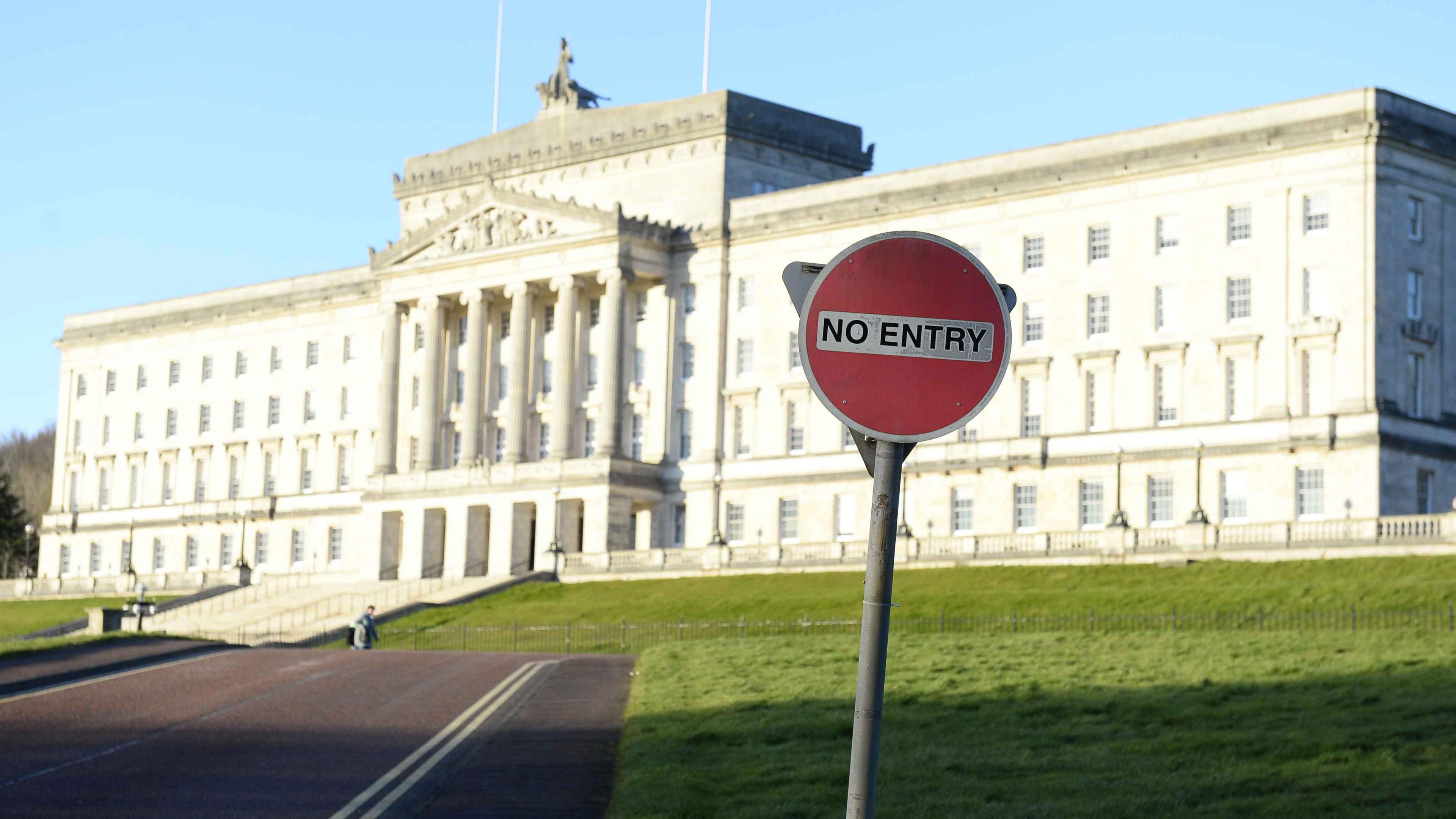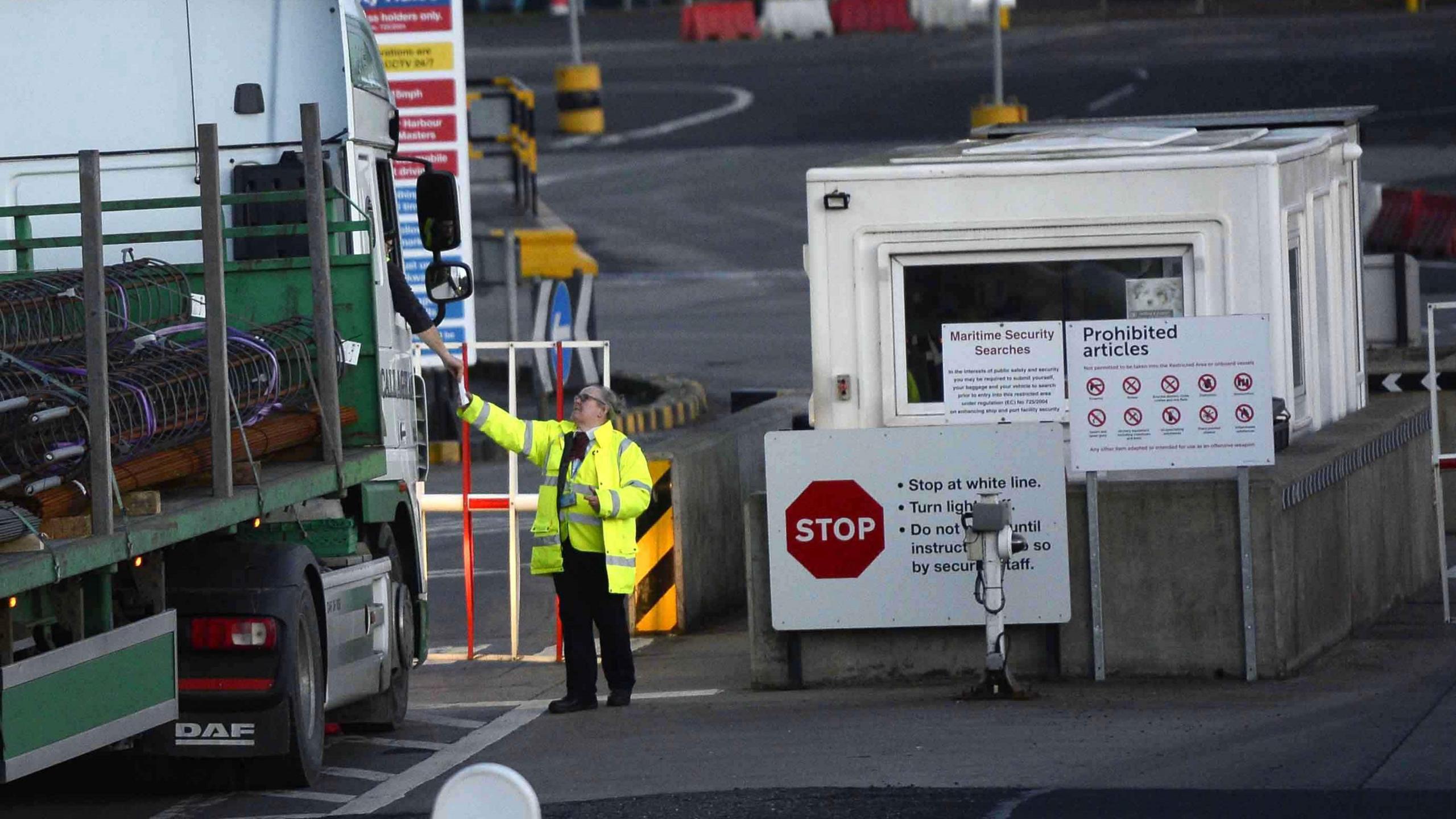MLAs to vote on post-Brexit trading rules

The Northern Ireland Assembly will vote on post-Brexit trading arrangements on 10 December
- Published
The Northern Ireland Assembly will vote on controversial post-Brexit trading arrangements next week.
It comes after several parties at Stormont tabled a motion to the assembly as part of the process that guarantees MLAs a say on whether to maintain some of the arrangements.
Known as the democratic consent motion, it was first agreed between the UK and EU in the 2020 Withdrawal Agreement to give Northern Ireland politicians a say in the new post-Brexit trading rules.
The vote is required to take place before the end of this year.
No cross-community support needed
The motion could be submitted by the first and deputy first ministers but as they did not do so by the end of November, it was tabled jointly by Sinn Fein, Alliance and the SDLP.
The vote is expected to take place on Tuesday 10 December.
But controversially, unlike other votes at Stormont, there is no requirement for cross-community support for the motion. A simple majority will suffice.
The DUP and other unionist parties have argued the vote creates a democratic deficit as the concerns of unionists who are in the minority at Stormont can be ignored.
In a statement last week, DUP leader Gavin Robinson said it had been "deliberately designed to drive a coach and horse through the cross-community consent principle which has been at the very heart of all political progress in Northern Ireland".
If the vote is carried without cross-community support the government has committed to ordering an independent review of the post-Brexit arrangements and their implications.
Windsor Framework

Customs border checks are carried out on trucks leaving and arriving at Larne Port in County Antrim
In 2023 the Northern Ireland Protocol became the Windsor Framework and was agreed between the UK and EU in 2023.
It gave some long-desired legal certainty to businesses, but the Irish Sea border will always be evolving so long as UK and EU rules continue to diverge.
For the EU, the new framework left the basic architecture of 2019's protocol intact, creating a trade border between Great Britain and Northern Ireland to prevent a hard land border between Northern Ireland and the Republic of Ireland.
Green and red lanes
Under the Windsor Framework, two "lanes" were created for goods arriving in Northern Ireland from Great Britain, a green lane for goods remaining in Northern Ireland and a red lane for goods which may be sent on to the EU,
Products going through the green lane do not need checks or additional paperwork. Red lane goods are still subject to checks.
Related topics
- Published31 October 2024

- Published2 February 2024
